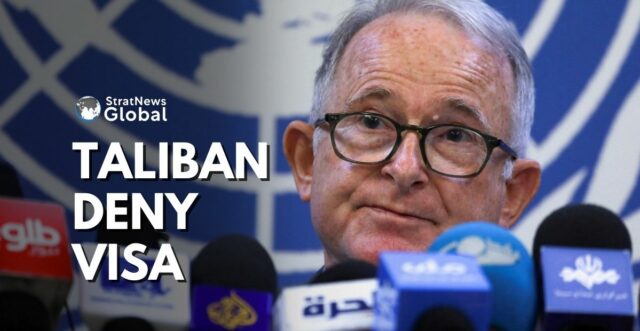The Taliban have barred United Nations-appointed special rapporteur Richard Bennett from entering Afghanistan, the administration’s spokesperson told local broadcaster Tolo, accusing the human rights watchdog of “spreading propaganda.”
Bennett was appointed by the United Nations Human Rights Council in 2022 to monitor Afghanistan’s human rights situation after the Taliban took over the previous year.
Bennett, who has previously said the Taliban’s treatment of women and girls could amount to a crime against humanity, is based outside Afghanistan but has visited several times to research the situation.
The U.N. Human Rights Council did not immediately respond to request for comment.
Taliban’s Reaction
Taliban administration spokesperson Zabihullah Mujahid has previously said the Taliban respect women’s rights in accordance with its interpretation of Islamic law and local customs. He told Tolo that Bennett would not be allowed to come to Afghanistan, a rare public barring of an individual foreign official.
“Mr. Bennett’s travel to Afghanistan has been prohibited because he was assigned to spread propaganda in Afghanistan. He is not someone we trust…he used to exaggerate minor issues and propagate them,” Mujahid said, according to Tolo. His office did not respond to Reuters request for comment.
Three years into their rule after foreign forces withdrew, the Taliban have not been formally recognised by any foreign government.
International Approach
Foreign officials, including Washington, have said the path towards recognition is stuck until the Taliban changes course on women’s rights, having barred most girls over the age of 12 from schools and universities, banning women from parks, and stopping most long-distance travel by women without a male guardian.
Afghanistan’s central bank assets have been frozen, and numerous high-ranking Taliban officials face U.N. travel restrictions, necessitating exemptions to exit the country.
The U.N. has been working to develop a coordinated international strategy for engaging with the Taliban. In June, senior U.N. officials and representatives from up to 25 countries met with the Taliban in Qatar. This meeting faced criticism from human rights organizations for excluding Afghan women and civil society members.
The U.N. mission to Afghanistan also operates from Kabul and monitors and reports on human rights issues.
(With inputs from Reuters)
















